
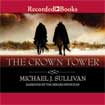 The Crown Tower (The Riyria Chronicles #1)
The Crown Tower (The Riyria Chronicles #1)
By Michael J. Sullivan; Narrated by Tim Gerald Reynolds
Publisher: Recorded Books
Publication Date: 6 August 2013
[UNABRIDGED] = 12 hours, 49 minutes
Themes: / fantasy / warrior / thief / prostitutes /
Publisher summary:
Two men who hate each other. One impossible mission. A legend in the making.
Hadrian Blackwater, a warrior with nothing to fight for is paired with Royce Melborn, a thieving assassin with nothing to lose. Together they must steal a treasure that no one can reach. The Crown Tower is the impregnable remains of the grandest fortress ever built and home to the realm’s most prized possessions. But it isn’t gold or jewels that the old wizard is after, and if he can just keep them from killing each other, just might do it.
The Crown Tower is the first book of the Riyria Chronicles series by Michael J. Sullivan in the same world as his Riyria Revelations series. Even though published later than Revelations, the Chronicles books are chronologically earlier and explore the adventures of the same characters before the events of Revelations. Sullivan gives a great forward to the book explaining all of this and explains that he went to great lengths to ensure that a new Riyria reader (like me) could start from either point. The Crown Tower serves as a great introduction to the world and the characters and I’m looking forward to more Riyria!
The plot of the novel mainly follows two threads: Hadrian is a highly skilled warrior who has quit fighting in armies and killing men for no good reason. He gets roped into a high risk heist with a thief (Royce) he doesn’t like or trust by an old wizard friend of the family. They need to steal something from an impregnable tower but there seems to be more going on here than it seems. Gwen is a prostitute stuck in the city of Medford waiting for a man of prophecy she isn’t sure will actually come. She works for a terrible man who cares nothing for his girls and is quickly reaching the breaking point. Oh and she can tell a man’s past, present, and future by reading his palm. Gwen’s story was the less compelling of the two threads for me, but I’m sure parts of her story have greater significance in later portions of Riyria.
I really like the dynamics between Hadrian and Royce just because of how different they are. Hadrian has hope in the world, faith in the goodness of people, and a desire to help others. Royce trusts nothing, no one, and is prone to killing innocents to remove the possibility of witnesses whenever needed. One is outgoing and the other is a complete mystery. Naturally, they hate each other.
I also really like the setting of the world and the way the book is written. So many fantasy book are going the direction of “grimdark fantasy” where everything is gritty and terrible, fights are graphic, and sex scenes are pornographic. Sullivan does a great job of being realistic portraying people in dire circumstances (like the prostitutes) while still keeping the novel clean overall. He manages to have a brothel in this story without being pornographic! Amazing! Sullivan also doesn’t dwell on gore and violence while still having compelling action scenes. He builds up some serious anticipation to see Hadrian fight and does not disappoint when it comes.
As for the audiobook performance, Tim Gerard Reynolds does a great job with the different characters’ voices in this book. Hadrian and Royce’s voices match their characters really well and I had no trouble following anything going on. He did well building up the suspense during the climax of the book. I am definitely looking forward to more novels read by Reynolds.
Posted by Tom Schreck


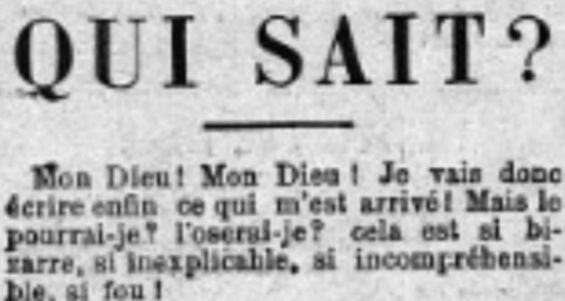
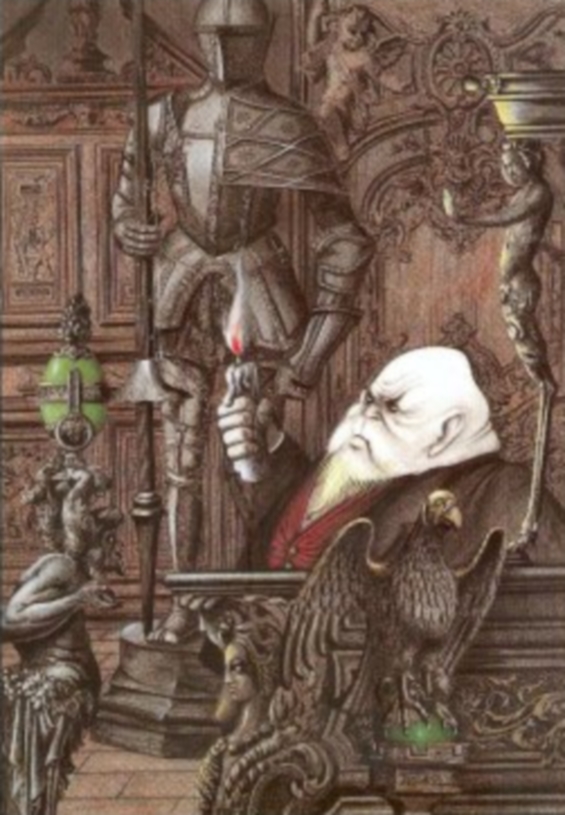
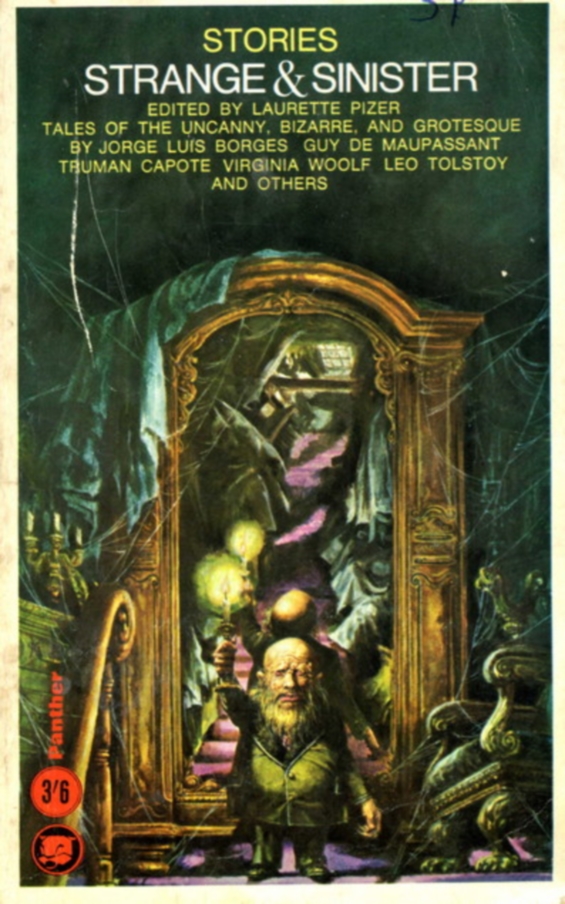
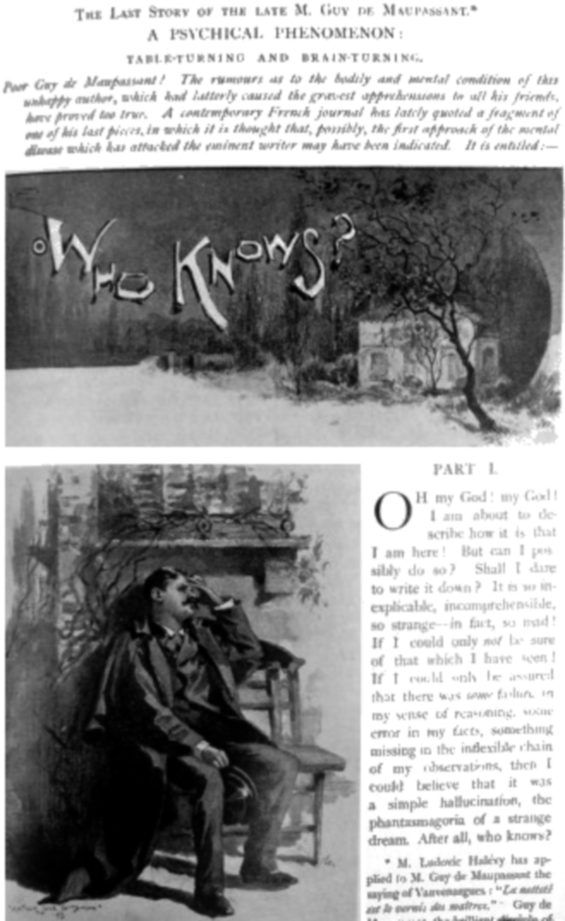


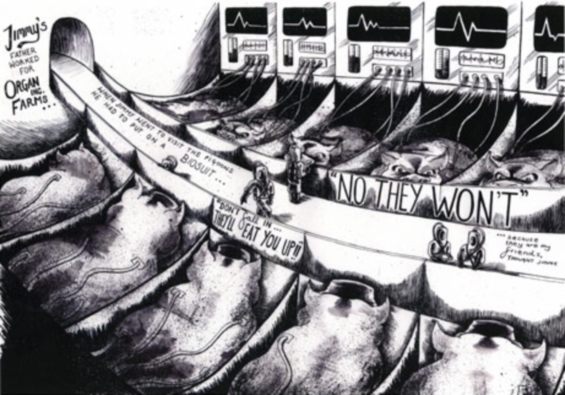
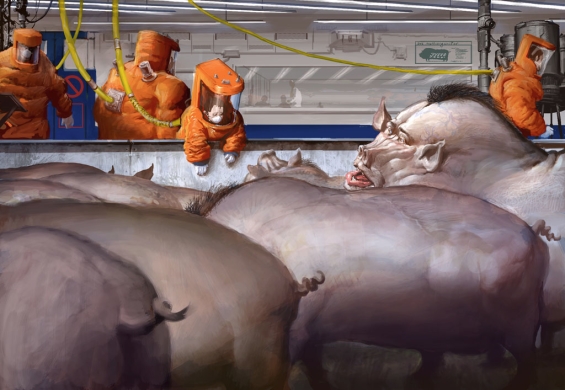

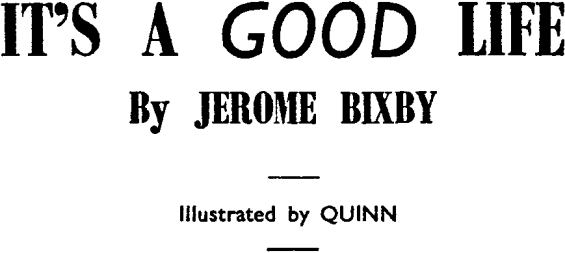
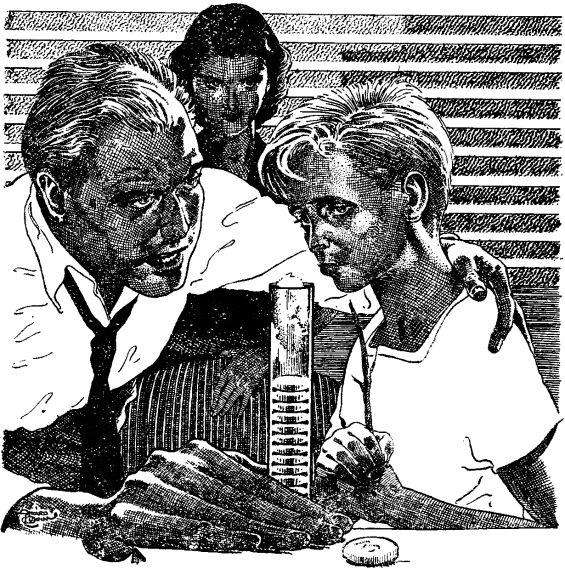


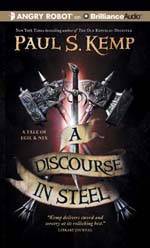 A Discourse in Steel (Egil and Nix #2)
A Discourse in Steel (Egil and Nix #2)